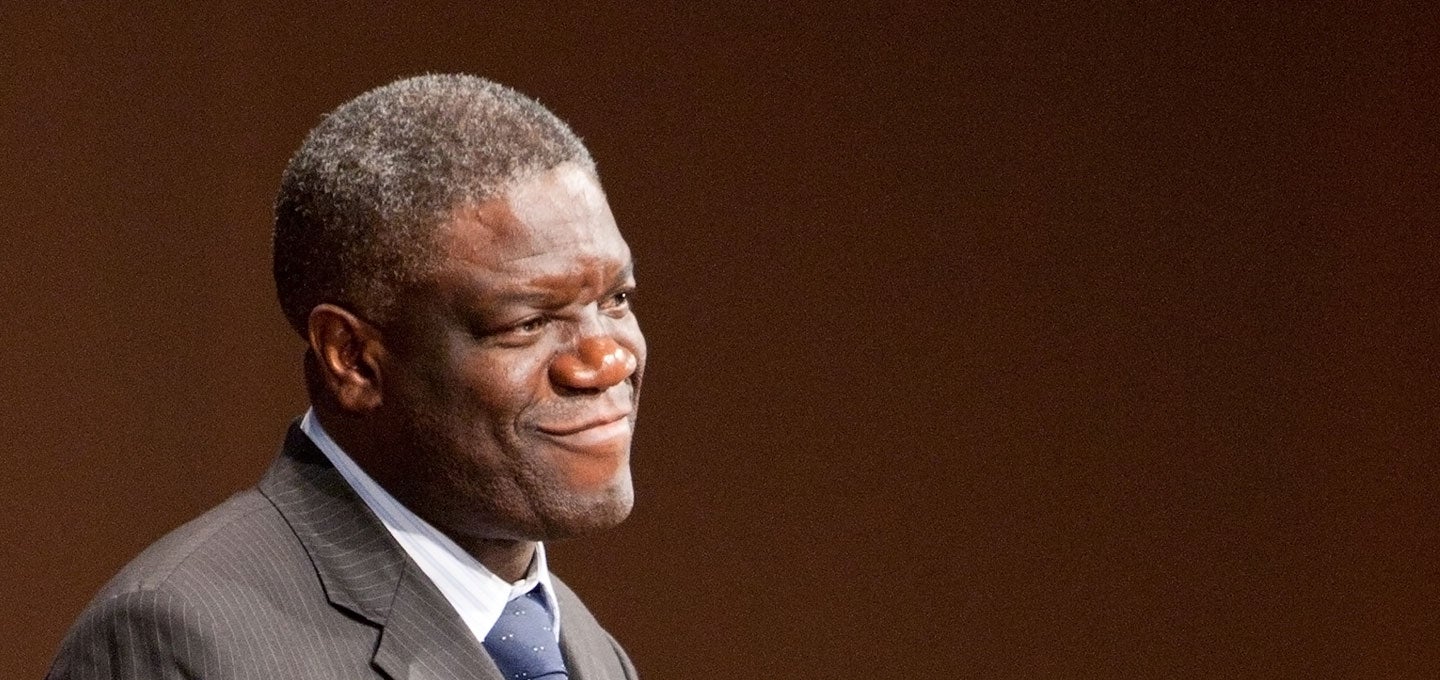“More than half a million women have been victims of sexual violence—that is, with torture and genital mutilation. How can a world that said after the Holocaust, ‘Never again’ remain indifferent to this plight today?”
Dr. Denis Mukwege is director of Panzi Hospital, in Bukavu, a city in the eastern part of the Democratic Republic of Congo. Since its establishment in 1999, Panzi Hospital has provided specialized surgical care for treating thousands of women who have been subjected to sexual violence that is used as a weapon of war in the wars that have ravaged the eastern Congo.
Bukavu and the Panzi Hospital lie at the epicenter of the world’s most deadly conflict since World War II.
Since 1996, a regional war and the ongoing violence it has spawned have claimed the lives of over 5.5 million people—mostly from disease and hunger, and mostly women and children. Militias, rebel factions and armed gangs continue to destabilize and terrorize the region, a conflict that is fueled by a struggle to control resources of gold, tin, tantalum and tungsten that abound in eastern Congo, metals essential for the manufacture of cell phones, computers and other electronic devices.
Most victims of this conflict are non-combatants. Survivors often suffer horrifying and lingering physical and mental wounds. Mass rape and sexual violence became an especially widespread weapon of terror, humiliation and revenge. These assaults tear at the social fabric of families and entire communities, clearing them from land were valuable resources may be found.
Denis Mukwege was born in Bukavu, the third of nine children in the family of a Pentecostal minister. He studied medicine at the University of Burundi and returned to the Congo’s South Kivu province to practice. Recognizing that women who were pregnant had no access to specialized health care, he studied gynecology and obstetrics in France. Dr. Mukwege returned to start a hospital south of Bukavu, which earned renown for the quality of its maternal care, but was destroyed in 1996 during the first outbreak of violence in the region.
By 1999, the fragile healthcare infrastructure in the region had collapsed, overwhelmed by refugees and the injured and sick. Responding to the desperate needs of women who were the primary victims in the conflict, Dr. Mukwege established the Panzi Hospital. Here he created a specialized surgical center for treating the many victims of the sexual violence that had become a brutal feature of the fighting.
Since he opened Panzi Hospital, Dr. Mukwege has performed reconstructive surgery on over 21,000 women and children, many suffering from severe wounds and mutilations. He is a world-leading expert in such surgery. While the hospital and its staff are vulnerable to the violence that surrounds it, Panzi has become a regional center for training of nurses and physicians to meet this humanitarian crisis.
Dr. Mukwege has developed interventions to provide psychosocial support to treat the emotional suffering of the women at Panzi Hospital, as well as vocational training, so they can again take up an independent life and support themselves and their families. He is a courageous and outspoken advocate on behalf of the victims of this epidemic of sexual violence, working to seek reparations and justice, drawing the world’s attention to the urgent need to end the violence in this war-torn region.
Dr. Mukwege shows how one determined person can make a difference. After an assassination attempt in 2012, he and his family went to Europe until security at Panzi could be re-established. On his return to Bukavu, crowds lined the roads to greet him for 20 miles between the airport and hospital.
Dr. Mukwege was awarded the UN Human Rights Prize in 2008, and Sweden’s Olaf Palme Prize in 2009.

